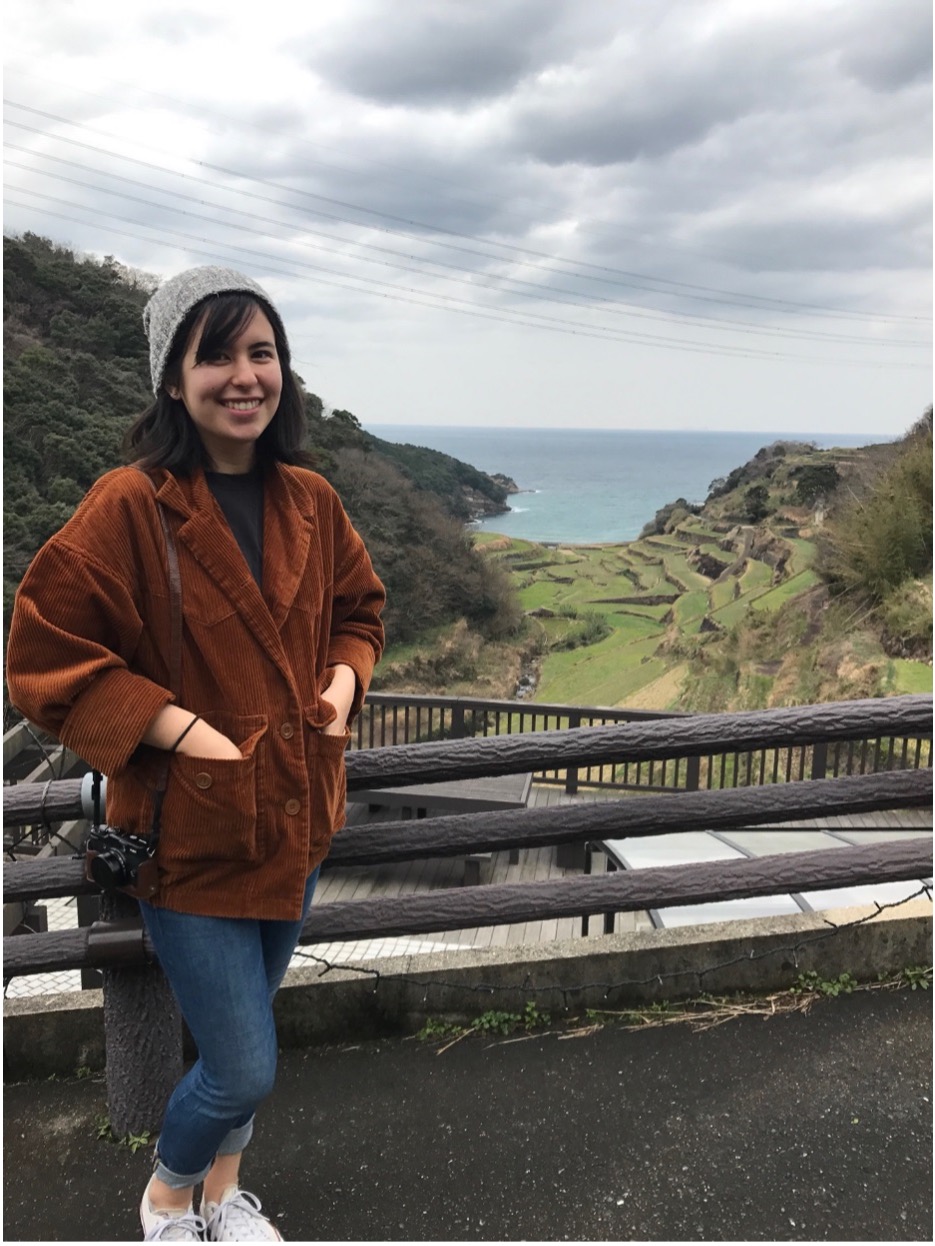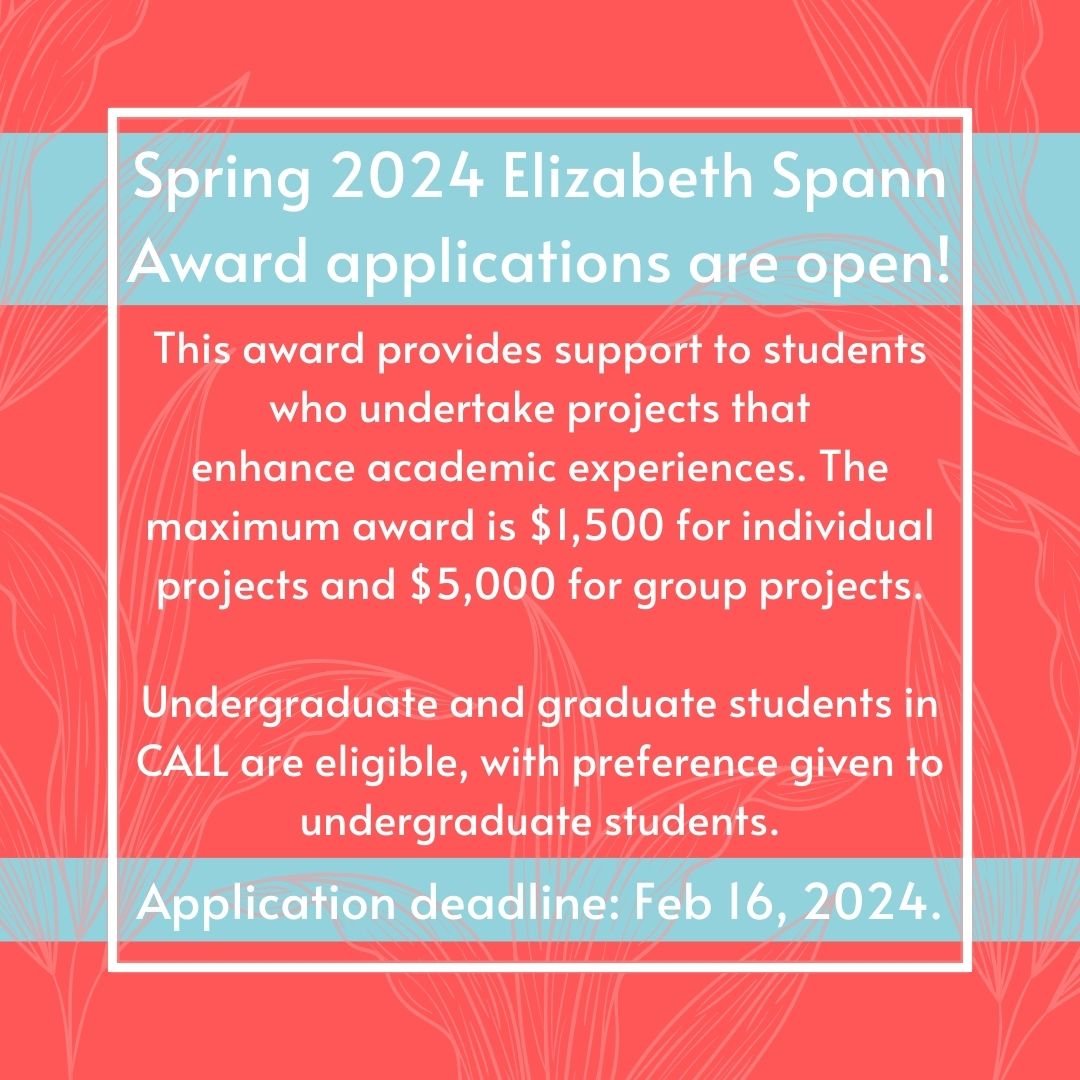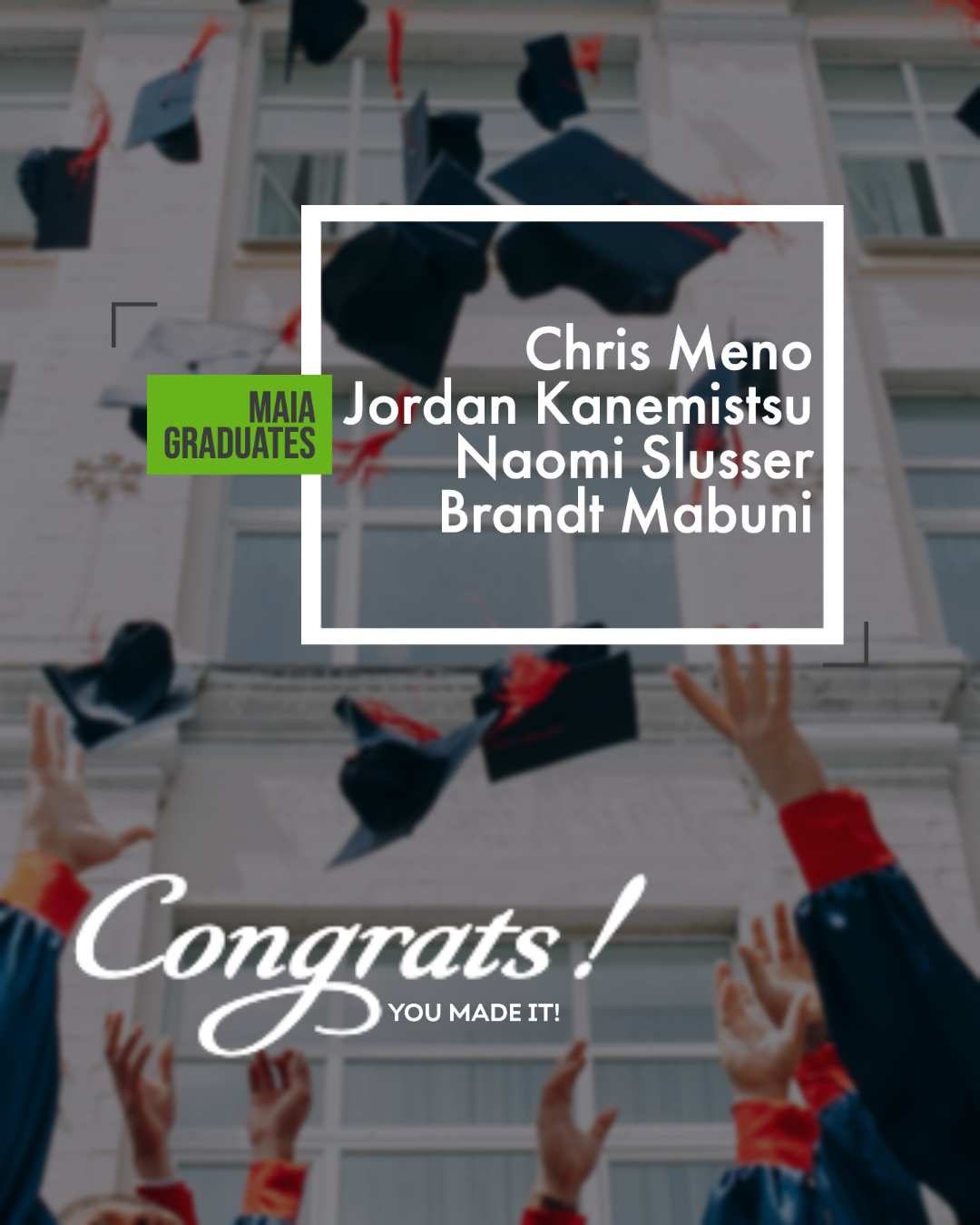The Spring 2024 Elizabeth Spann Award is open for students to apply. This award provides support to…
Spring 2017 Courses
More Coming Soon!
Click this link for Manoa Class Availability Listings in Asian Studies for Spring 2017
ASAN 202 Introduction to Asian Studies: South/Southeast Asia, Professor Barbara Andaya
An overview of the diverse societies of South and Southeast Asia, and how issues in contemporary times have been shaped by religion, history, cultural attitudes and international influences
ASAN 320C Asian Nation Studies: China (WI, OC), Prof. Cathy Clayton
Through memoir, fiction, film, and journalistic accounts, this course examines continuity and change, unity and diversity, and ideas of what constitutes “justice” and “the good life” in contemporary China. Fulfills Writing and Oral Communication Foci.
ASAN 320I Asian Nation Studies: South Asia (WI), Prof. Anna Stirr
Explore current issues and everyday life in modern India, Pakistan, Bangladesh, Nepal, and Sri Lanka, with units on modern postcolonial nation-building, gender and family, social differences/ movements for equality, and global flows.
ASAN 470 Sustainable Development in Asia, Prof. S. H. Lee
This course provides an overview of problems and challenges of sustainable economic development in Asia, focusing on East Asia.
ASAN 485 Contemporary Chinese Development, Prof. Eric Harwit
Traces the contemporary development of China’s political, social, and economic systems. Focuses on political and social modernization, including social media, in present-day China and Taiwan.
ASAN 491G Emotion and Affect in Asian Performance, Prof. Anna Stirr
How does a performance move us? Examine sociocultural aspects of performance, embodiment, and emotions/affect, comparing Asian and Western perspectives, and exploring their relation to religion, environment, politics, migration, nationalism, and health and healing.
ASAN 491K North Korean History and Culture, Professor Young-a Park
This course explores the history and culture of North Korea. It examines the major events and themes of North Korean history and their representations in cultural products, such as art, architecture, film, music, and theater.
ASAN 496 (WI, E), Prof. Barbara Andaya
A comparative, interdisciplinary examination of indigenous beliefs, Islam, Christianity, and Hinduism in island Southeast Asia, and how these have been shaped by contemporary social and economic changes.
ASAN 600I South Asia: Scope and Methods, Prof. Anna Stirr
How have different disciplines in the humanities and social sciences contributed to scholarship on South Asia? Find out through attention to foundational texts, field-shaping trends, and UH Manoa scholars’ contributions, and develop experience in research, academic writing, and analytical thinking.
600S Southeast Asia: Scope and Methods, Prof. Barbara Andaya
Provides a comparative understanding of each country in Southeast Asia, with particular attention given to the debates that have engaged academics and the public. The course also gives experience in writing proposals, oral presentations, and mechanics of academic referencing





